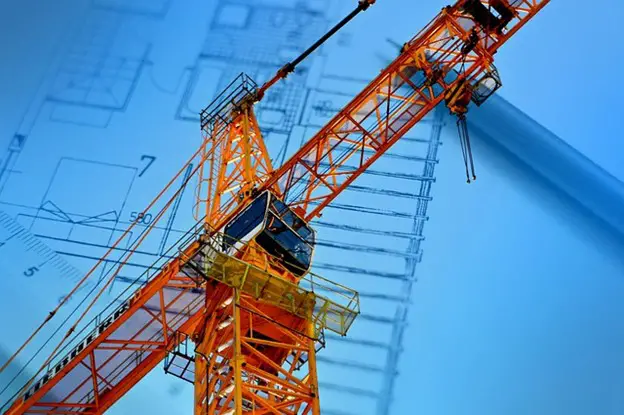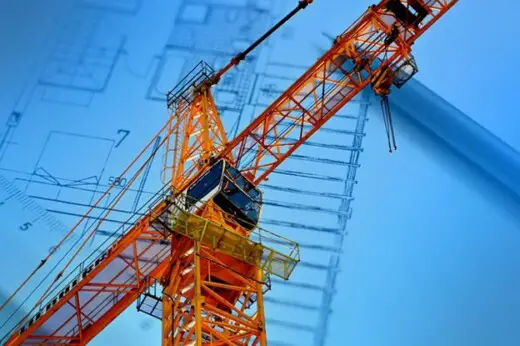7 things to know before starting a construction project guide, Planning a new build or refurb, Building process advice
7 Things to Know Before Starting a Construction Project
post updated 21 April 2024
Planning and researching are essential aspects when undertaking a construction project. From selecting the right contractor for your job, getting pricing estimates from multiple vendors, and finding ways to stay within budget, all these responsibilities can easily become overwhelming.
Making informed decisions before starting any major construction project is crucial, whether you’re building an addition to a home or renovating part of a business property. Before starting your next construction project, know these seven things.
5 July 2023
1. Develop a Detailed Plan
Start your project by clearly outlining your goals and objectives. Then begin to map out the entire project from start to finish, including all phases such as permit acquisition, materials selection, subcontractor hires, and timeline expectations. Make sure to factor in unforeseen expenses or delays when developing your timeline. Creating a project plan can keep you organised and ensure important tasks are noticed. Additionally, having a comprehensive plan makes it easier to share information with contractors so they can provide accurate quotes upon request.
2. Legal and Permitting Requirements
Research your construction project’s legal and permitting requirements to avoid costly fines or delays. Be mindful of any special requirements, such as noise levels or environmental regulations, that must be followed throughout the process. Contact local authorities to determine all necessary paperwork that needs to be filled out before work begins. Additionally, investigate and read up on any laws or regulations that must be followed when completing a construction project in your area.
3. Set a Realistic Budget
Make sure you understand your budget before getting started. Always get multiple quotes from different contractors and vendors to compare prices and find the best deal. Factor in any unexpected expenses during the project, such as design changes or additional materials. Having a set budget allows you to make better decisions when selecting materials or hiring subcontractors without exceeding your limits. Planning for post-construction expenses such as inspections and final cleanups is also essential.
4. Hire the Right Team
Select a qualified contractor with the proper credentials and experience in similar projects. Ask for references and review portfolios before making any decisions. You should also check that any subcontractors employed are properly licensed and insured. Have a good working relationship with contractors and subcontractors so they can communicate any issues or changes quickly and effectively.
Working with an architect from a reputable architecture firm can also be beneficial when designing your project. From designing a functional layout to selecting the best materials and finishes, architects take care of every detail to ensure that your home or building is everything you want and need it to be.
5. Research Vendors
Read reviews and ask for references before committing to any particular supplier or subcontractor. Request multiple quotes for materials, labour, and other services you might need to find the best deal. Feel free to negotiate pricing or delivery times if needed with suppliers. Researching vendors will help ensure you get quality products at a reasonable price without sacrificing safety regulations or timeline expectations.
6. You Need a Professional Project Manager
A professional project manager can help you stay on top of all tasks related to the construction job. They will track progress, manage deadlines and budgets, coordinate subcontractors and vendors, and handle any legal matters that may arise during the process. Having an experienced individual in charge makes planning for any potential delays or budget issues easier. Additionally, project managers have the know-how to troubleshoot problems while keeping all parties informed throughout the process.
7. Monitor the Construction Process
Staying involved throughout the construction process is key in ensuring that all tasks get completed to your satisfaction. Ensure safety protocols are followed and both contractors and subcontractors maintain quality standards. Promptly address any necessary changes within the budget during the project.
It’s also important to keep detailed records of materials purchased, progress reports from contractors, and all paperwork related to the job. Additionally, accidents can easily occur on-site, so monitoring safety practices throughout the process is vital. Provide any necessary safety equipment or training that might be required for specific tasks or materials being used.
7 things to know before starting construction project – Endnote
From permits and budgets to vendors and project managers, there are many things to consider when planning a construction project. Carefully planning each detail will ensure that your project goes smoothly from start to finish. Researching contractors, double-checking paperwork, and staying involved throughout the process make reaching your desired outcome easier without major delays or issues. Following these tips can help make your construction project run smoothly from start to finish.
Comments on this guide to7 things to know before starting construction projectn article are welcome.
Architecture
Rowanbank Gardens Edinburgh Housing
West Town Edinburgh Property Vision
Comments / photos for the 7 things to know before starting construction project advice page welcome





